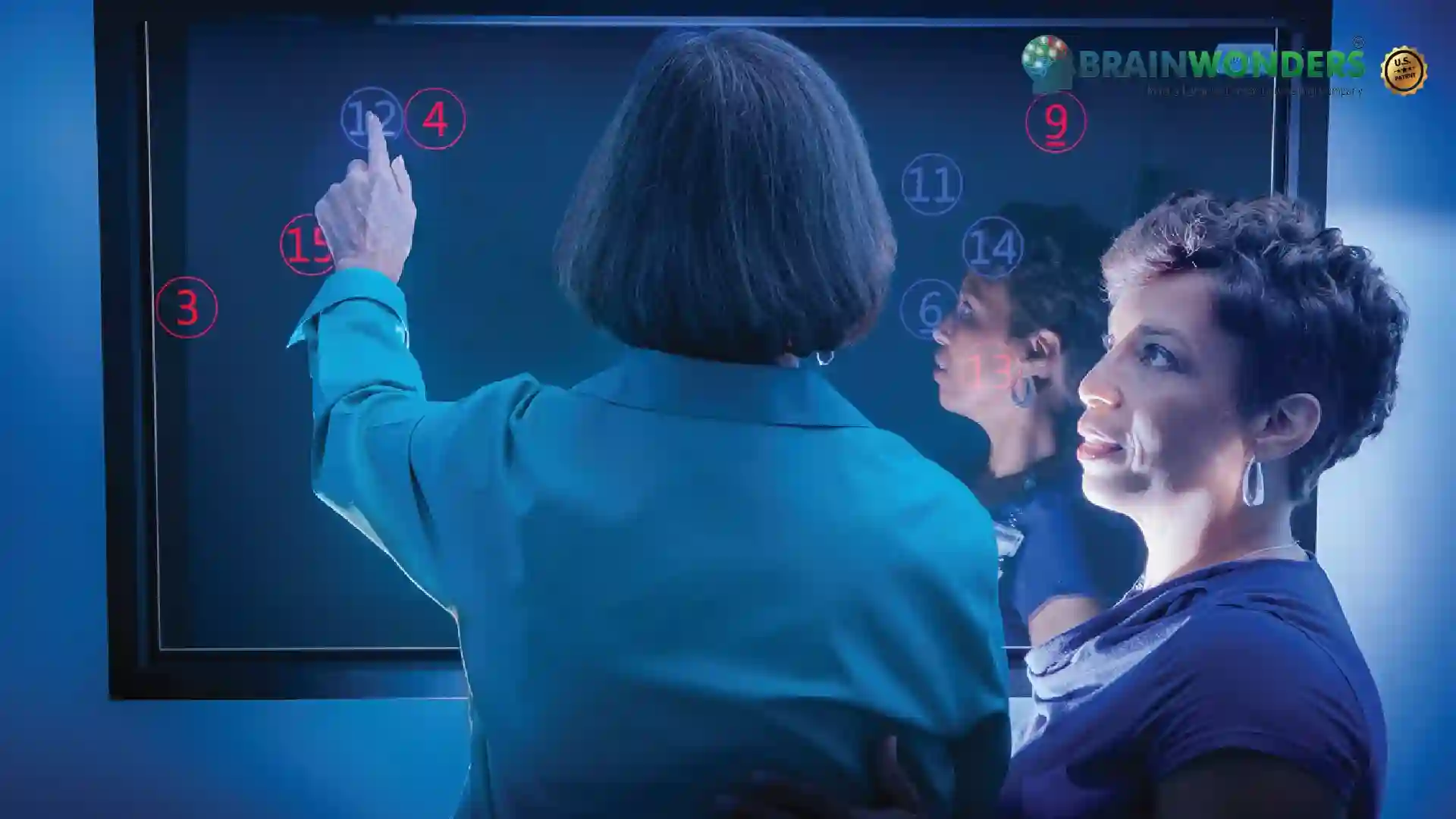How to become a Vision Rehabilitation Therapist
Overview, Courses, Exam, Colleges, Pathways, Salary

Overview
Who is Vision Rehabilitation Therapist ?
A Vision Rehabilitation Therapist (VRTs), also known as Vision Rehabilitation Specialist, teach and restore adaptive and independent living skills, to clients with visual impairment, blind, or have low vision to develop their daily life functioning. Individuals who suffer visual impairments are not legally blind; they have some vision. He/she instructs on critical motor skills such as cane usage and sophisticated mobility equipment. His/her job also involves teaching the family members of the patient to handle and manage work with the patient patiently.
Typical day at work
What does Vision Rehabilitation Therapist do?
- Teach how to use cane, use of cane with a guide, diagonal techniques, and two-point touches which helps provide information to patients about the surface over which they are about to walk
- Teach clients to use tactile, auditory, kinesthetic, olfactory, and proprioceptive information to detect landmarks and reference points and move safely through their environment
- Evaluate patient’s visual functioning, orientation and mobility skills, social and emotional problems, cognition, physical capabilities, and individual goals
- Tutor patients to travel self-reliantly, with the help of GPS, travel simulations or actual exercises
- Monitor progress to decide whether modifications in rehabilitation plans are required
- Based on assessment results, needs, and goals, develop rehabilitation or instructional plans collaboratively with clients
- Train in and suggest suitable mobility devices or systems like human guides, dog guides, long canes, electronic travel devices, and other adaptive mobility aids give off vibrating or audible signals in case of obstacles
- To provide solutions to client’s concerns, collaborate with other professionals, like rehabilitation counselors, speech therapists, and occupational or physical therapists
- Consult, support, or psychoeducate parents and teachers
- Engage in professional development activities like reading literature, continuing education, joining conferences, and working with colleagues
- Train patients adaptive equipment use like large print, reading stands, lamps, writing implements, software, and electronic devices
- Document assessments, exercises, growth, or results by writing reports
- Administer and interpret tests to develop rehabilitation plans
- Provide referrals for eye or health care, rehabilitation, counselling services to enrich vision and daily functioning
- Train in self-regulating skills and techniques like adaptive eating, medication management, and other personal needs management
- Distribute and maintain low vision devices
- Identify visual impairments linked to rudimentary life skills in areas like self-care, communication, health and home management
- Tutor patients to read and write Braille
- Plan instructional programs with the help of devices like slate and stylus, braille, keyboard, adaptive handwriting devices, talking book machines, digital books, and optical character readers to improve communication
- Provide advice and consultancy to various professionals about the built environment, access and use of public transport, and information desk for the use of visually impaired people
- Motivate and encourage clients towards exploring and mastering activities.
Abilities and Aptitude needed
What are the skills, abilities & aptitude needed to become Vision Rehabilitation Therapist?
- Therapists must be able to listen and communicate actively and attentively to the needs of the patients. Also, educate and instruct patients and their carers about therapy. Thus, having good communication and interpersonal skills is necessary.
- Therapists must be sensitive, patient, and empathic to patients’ needs and concerns. They need to make their patients feel comfortable and let them know they care. Thus, they must be able to handle the emotional stress of working with impaired patients in need of compassionate health care.
- They also need to be creative and flexible with their treatment plans as not every type of therapy will work for every client, thus, have the ability to be resourceful and customize treatment plan for each client and their concerns.
- They spend much of their time on their feet and use their hands to teach techniques and help patients perform exercises, thus physical stamina and manual dexterity is essential.
Pathways
How to become an Vision Rehabilitation Therapist?
Entrance Exam
Entrance Exam for Vision Rehabilitation Therapist ?
Courses
Which course I can pursue?
Best Colleges
Which are the best colleges to attend to become an Vision Rehabilitation Therapist?
Industries
Which Industries are open for Vision Rehabilitation Therapist?
Yes, internships for visual communication designers are available in various industries, offering valuable opportunities to gain practical experience and further develop skills in the field. While internships tailored explicitly for visual communication designers may vary in availability, here are a few avenues to explore:
- Design Agencies and Studios: Design agencies and studios often offer internships for visual communication designers, providing hands-on experience creating visual assets, working on client projects, and collaborating with experienced designers.
- Advertising and Marketing Companies: Advertising and marketing companies may have internships that involve visual communication design tasks. Interns can gain experience creating graphics, designing advertisements, assisting with branding projects, and contributing to marketing campaigns.
- Media and Publishing Organizations: Media companies, publishing houses, and online publications occasionally offer internships that involve visual communication design. Interns can work on layout design, illustration, and infographic creation and contribute to visual storytelling for various media platforms.
- In-house Design Departments: Internships can be available within companies' design departments across different industries. It can include corporations, non-profit organizations, educational institutions, and government agencies, where visual communication designers work on internal projects, branding initiatives, and communication materials.
- Digital Design and User Experience (UX) Agencies: Digital design and user experience agencies may offer internships focused on visual communication design for digital platforms. Interns can gain experience in creating visually engaging websites, mobile app interfaces, and digital marketing assets.
- Exhibition and Museum Design: Interning at exhibition design firms or museum design departments can provide hands-on experience in creating visual displays, interpretive graphics, and signage for exhibitions and museum installations.
- Non-profit and Social Impact Organizations: Non-profit organizations and social impact initiatives may offer internships for visual communication designers to contribute to awareness campaigns, advocacy materials, and fundraising efforts.
- Educational Institutions: Some educational institutions, particularly universities, and colleges with design programs, offer internships within their communication or design departments. Interns may assist in creating visual materials for campus initiatives, events, or marketing campaigns.
internship
Are there internships available for Vision Rehabilitation Therapist?
Internship opportunities tailored for vision rehabilitation therapists may be limited compared to other fields. However, aspiring vision rehabilitation therapists can explore some avenues to gain practical experience and further develop their skills. Here are a few possibilities:
- Healthcare and Rehabilitation Centers: Hospitals, clinics, and rehabilitation centers that offer vision rehabilitation services may have internship programs or assistant roles for students or individuals interested in pursuing a career as a vision rehabilitation therapist. These internships can provide hands-on experience working with individuals with visual impairments, assisting with therapy sessions, and observing rehabilitation.
- Non-profit Organizations: Non-profit organizations focused on supporting individuals with visual impairments often offer internship opportunities. These organizations may have vision rehabilitation programs and services where interns can gain practical experience working with clients, assisting with assessments, and learning about adaptive techniques and technology.
- Educational Institutions: Educational institutions with programs for individuals with visual impairments, such as schools for the visually impaired or inclusive schools, may offer internships or assistant positions for aspiring vision rehabilitation therapists. Interns can gain experience working with students with visual impairments, assisting with classroom activities, and supporting the educational needs of these students.
- Government Agencies: Government agencies, such as state health departments or social services, may have internship programs or assistant roles within their vision rehabilitation programs. Interns can gain exposure to government-funded vision rehabilitation services, work with clients, and learn about the policies and practices in the field.
- Assistive Technology Companies: Companies that develop and provide assistive technology solutions for individuals with visual impairments may offer internship opportunities. Interns can gain experience working with assistive devices, software applications, and other technologies used in vision rehabilitation.
Career outlook
What does the future look like for Vision Rehabilitation Therapist?
Visual Rehabilitation Therapist may find work in hospitals or community, private or public agencies that focus on providing services specifically to those with disabilities. Therapists may also be self-employed, providing service to individuals at home or at their own private practice center. Advancement in the profession requires further education, experience, and solid recommendations. They may become supervisors in an agency or go ahead in teaching. Their work consists of both private sessions with clients to provide mobility services, and also offering professional consulting services to government agencies and other personnel for a surrounding fit for visually impaired.
.webp)


